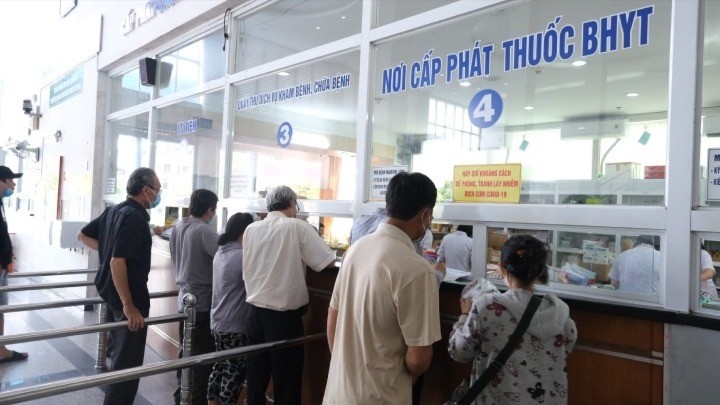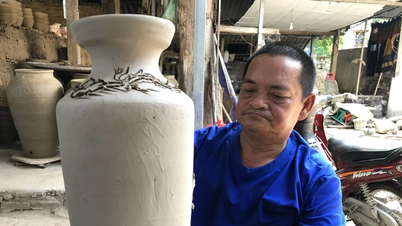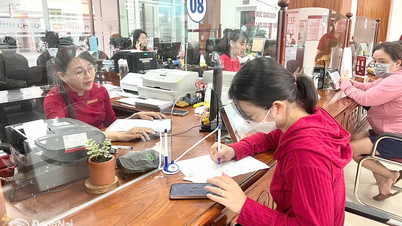Benefits of dispensing medicine for more than 30 days
The Ministry of Health has just issued Circular No. 26/2025/TT-BYT dated June 30, 2025 regulating prescriptions and pharmaceutical and biological products in outpatient treatment at medical examination and treatment facilities.
created, the Circular promulgates the List of diseases and groups of diseases that are applicable to outpatient prescriptions for more than 30 days, including 252 diseases and groups of diseases. For diseases in this List, the prescriber decides the number of days of use of each drug in the prescription based on the clinical condition and stability of the patient to prescribe the drug with the maximum number of days of use of each drug not exceeding 90 days.
Thus, in cases where documents used as a basis for prescribing drugs such as drug instructions, diagnosis and treatment instructions, and the Vietnamese national pharmacopoeia do not provide instructions on the number of days of drug use, prescribers have a basis to decide to prescribe up to 90 days for appropriate patients.

Dr. Nguyen Quang Bay, Head of the Department of Endocrinology, Bach Mai Hospital, said that the group of chronic diseases is characterized by the elderly, dependent people, low income; people with many comorbidities, taking many medications, and limited mobility.
Therefore, the birth of Circular 26/2025 was positively received by both medical staff and patients.
This endocrinologist believes that prescribing for more than 30 days helps reduce the number of times and time spent going to the hospital or clinic for oneself and family members; saves on travel and food costs along the way; limits sources of infection at the hospital or on public transport; and limit the impact of environmental pollution and bad weather.
"A stable prescription that is not changed for at least 2-3 months will increase treatment compliance," said Dr. Fly.
It is necessary to classify patients to provide appropriate medication.
According to Dr. Nguyen Quang Bay, there are some points that doctors have some concerns about in managing patients with long-term prescriptions.
First, people who are given long-term medication may have a subjective mentality of thinking that their illness has stabilized, so they do not monitor their condition (such as measuring blood sugar, blood pressure), do not exercise daily, eat irregularly, especially take medication irregularly, or even stop taking medication.
Due to lack of regular healtheducation and consultation; lack of medical examination, patients easily miss serious symptoms; forget to return for check-ups, leading to running out of medicine.
People with multiple chronic diseases, treated at different hospitals/specialties, may have some medicines still in stock but some may be out of stock.
To effectively implement this, Dr. Bay said that medical facilities must prepare enough medicine to provide to patients, possibly 2-3 times more than usual. Along with that, there must be human resources to serve, coordinate medical examination and medicine distribution. At the same time, it is necessary to ensure a smooth information technology system, connecting the clinic - medicine warehouse - medicine distribution point and pharmacy; a system of signs, patient instructions.
In particular, doctors at the examination department must carefully study the list of diseases and discuss thoroughly with patients and their families to see which specific cases can be prescribed for 30, 60 or 90 days.
At the same time, the examining doctor needs to schedule a detailed appointment for the date and time of the follow-up visit, instruct the patient to come to the appointment on time; provide a hotline number, Zalo numbers... for the patient to contact when they have questions or health abnormalities.
Doctor Bay recommends that chronic disease means a long-term illness, stability is only temporary, people with chronic diseases are often elderly, have many diseases... so to maintain a stable condition, good health, it is necessary to: Read the prescription carefully before leaving the hospital, if there is anything you do not understand, you need to discuss immediately with the examining doctor or pharmacist who dispenses the medicine.
In particular, those who receive long-term medication need to pay attention to drug storage. "Because they receive a lot of medication, there is a risk of mixing different types of medication, especially when there are 2-3 people in the family with chronic diseases. Diabetic patients who use insulin need a refrigerator to store their medication because insulin can only be kept at room temperature for less than 4 weeks," Dr. Bay emphasized.
This expert also reminded patients to comply with injections or taking medication fully and on time: put medication next to the dining table or in the bedroom; set a phone alarm to remind the time; regularly monitor heart rate, blood pressure, and blood sugar parameters at home or at the pharmacy or commune/ward health station.
Remember to contact your doctor or hospital hotline immediately if you have any unusual health symptoms or if you have another illness. You can go back for a check-up without waiting for the full 60 or 90 days of your appointment; proactively make an appointment 3-5 days in advance via the hospital's hotline or medical examination app.
Source: https://baolaocai.vn/nguoi-benh-can-luu-y-gi-khi-duoc-phat-thuoc-ngoai-tru-hon-30-ngay-post647956.html





























































































Comment (0)